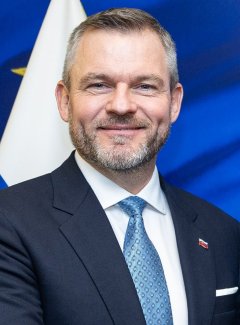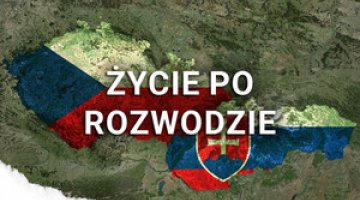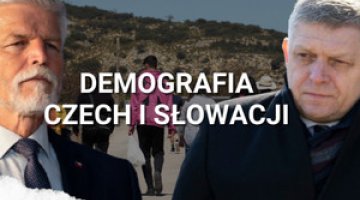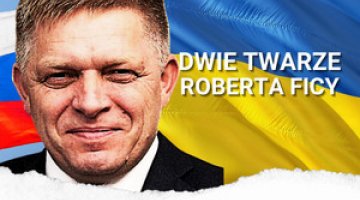Pellegrini becomes Slovakia’s new president: consolidation of the ruling camp

On 6 April Peter Pellegrini, a representative of Slovakia’s ruling coalition, won that country’s presidential election and will succeed Zuzana Čaputova in mid-June. Although in the first round he came 5.5 p.p. behind Ivan Korčok, the candidate of the opposition liberals and the centre-right, he won the second round with a result of 53.1%. He owes this to the mobilisation of non-voters in the first round, and to winning round most of the other contenders’ electorates. Turnout was 61%, the highest since 1999 when the Slovak president was first elected by direct election. The figure was also almost 10 p.p. higher than the first round, and just under 20 p.p. higher than in the second round five years ago.
Both during the campaign and after the final results were announced, Pellegrini emphasised the theme of harmonious cooperation with the government, and laid great emphasis on the issue of keeping Slovakia out of the Ukraine-Russia war, while not undermining Slovakia’s membership of the EU, and NATO in the future.
Commentary
- Pellegrini’s win means that the ruling left-nationalist camp will have the most important offices in the country under its control; this will help it to consolidate power and make it easier to push through controversial reforms (see ‘Presidential election in Slovakia: a full house for the left-nationalists?’). Even before the presidential election, Prime Minister Robert Fico had pushed through amendments to the country’s criminal law and moved towards taking control of the public media (see ‘Slovakia: controversial changes to the criminal law, and a dispute with Brussels on the horizon’). Pellegrini’s personal relationship with Fico has not been ideal over the years, but he managed to win thanks to the PM mobilising the pro-Russian, anti-system electorate. Pellegrini also owes his triumph to a strong negative campaign against Korčok (who was presented as a ‘warmonger’), as well as the votes of representatives of the Hungarian minority, which also came as a result of the direct support given to him by the government in Budapest and the head of the largest Slovak Hungarian party. Pellegrini’s first statements after the announcement of the results suggest his intention to work in concert with the head of government. Another factor favouring Fico and the stability of the ruling camp is the rumour that interior minister Matúš Šutaj Eštok – who is close to the prime minister both in terms of his views and in his aggressive style of politics – might take over the leadership of the centre-left party Hlas (which is part of the coalition) from Pellegrini.
- In foreign policy, Pellegrini is likely to be the softer face of the ruling camp. He was one of its few leading activists to openly name Russia as the aggressor, and during the campaign itself – despite the calls of Štefan Harabin, who came third in the first round and whose supporters Pellegrini was competing for – he defended the idea of commercial transfers of arms to Kyiv. At the same time, he acquired a reputation as a person with flexible views, who is able to adapt his rhetoric to the expectations of his audience. For example, he argued that he was not interested in representative functions such as the presidency just a few weeks before announcing his candidacy. Particularly in the first year after the outbreak of the full-scale war, he adopted a pro-Ukrainian stance (he even referred to President Volodymyr Zelensky as an ‘inspiration’) in an effort to differentiate his party from Fico’s Smer. In the campaign, however, he changed his message in order to meet his target electorate, among whom there is widespread resentment towards Ukraine.
- Korčok may try to consolidate his support: in absolute terms, he scored 18% better than the result that allowed Čaputová to win in 2019. The divided centre-right opposition is in desperate need of a leader who can unite the oft-warring parties; the last such figure to achieve this was Mikuláš Dzurinda at the beginning of the 2000s. Although Korčok, a long-time diplomat, has shown at times that he lacks purely political experience, his successful mobilisation of voters from the centre-right and liberal camps makes him one of the potential leaders of the anti-Fico forces. This is also supported by his association with the themes that unite this group (the country’s unambiguously pro-Western orientation and the fight for the rule of law), rather than the cultural issues that divide it.
APPENDIX
Profile of the president-elect of Slovakia
Peter Pellegrini (born 1975) has chaired Slovakia’s unicameral parliament, the Národná rada, since autumn 2023. He is the leader of the centre-left Hlas (Voice)-Social Democracy coalition party. He founded this grouping in 2020 in an attempt to take advantage of the personal popularity he had gained during his premiership in 2018–20, and to distance himself from the then-waning public support for Fico and his Smer party, which he joined when he was only 25. Although Fico had long been Pellegrini’s political mentor, and promoted him to the positions of parliamentary speaker (2014–16), deputy prime minister (2016–18) and then prime minister, their relationship (especially in recent years) had become strained. After the 2023 elections, too, Pellegrini wavered for a while as he explored the available options, but eventually opted for a pragmatic alliance with Fico.
For years, the new president-elect has regularly ranked among the politicians with the highest level of trust among Slovaks, and recently took the lead (46% of the public have a positive opinion of him). In private he has declared that he is not in a relationship, but one of the topics of his election campaign was his alleged homosexual orientation. He has not commented on this, and during his election campaign he even criticised the idea of introducing civil partnerships, including for same-sex couples (although while a parliamentary deputy he had previously voted for it himself). He is an economist by training. He speaks English and German, and claims passive knowledge of Russian. He is originally from Banská Bystrica, to which he still retains ties.





